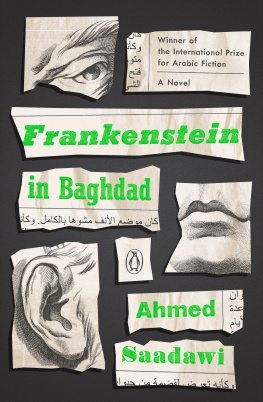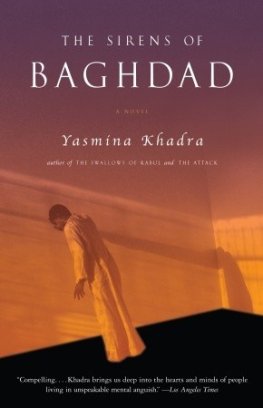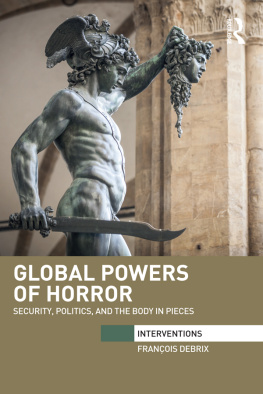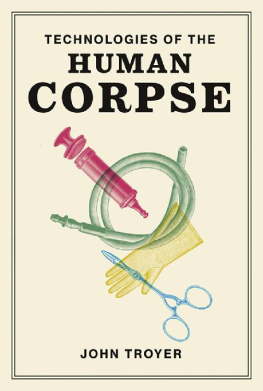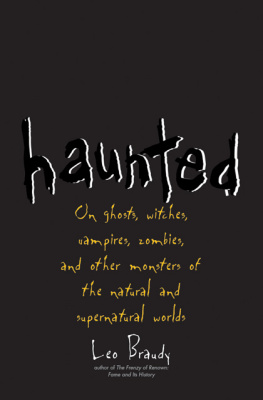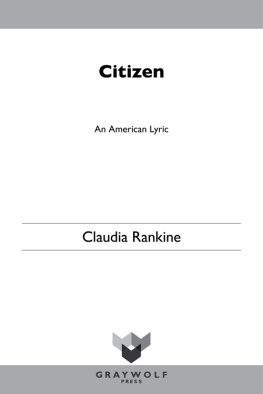A CCLAIM FOR
Frankenstein in Baghdad
A remarkable book from the heart of terror, where violence dissolves the divide between reality and unreality.
Thomas McGuane
Frankenstein in Baghdad is a quietly ferocious thing, a dark, imaginative dissection of the cyclical absurdity of violence. From the terrible aftermath of one of the most destructive, unnecessary wars in modern history, Ahmed Saadawi has crafted a novel that will be remembered.
Omar El Akkad, author of American War
Horrifically funny and allegorically resonant, Frankenstein in Baghdad captures very well the mood of macabre violence that gripped Baghdad in 2005.
Brian Van Reet, author of Spoils
Weaving as seamlessly from parable to realism as a needle weaves a tapestry, Frankenstein in Baghdad perfectly captures the absurdity, mayhem, and tragedy of war. Mahmoud the hapless journalist, Hadi the unwitting Dr. Frankenstein, and Elishva the mother are all profoundly human and appealing, our guides to a rare glimpse of the human beings on the receiving ends of our wars. Funny, bizarre, and captivating, this is a must-read for all Americans who are curious to see the war at last from an Iraqi point of view.
Helen Benedict, author of Wolf Season and Sand Queen
A haunting allegory for sectarian violence.
The New York Times
Matter-of-factly, Saadawi sets out a realityBaghdad in 2005so gothic in its details... that, when the novel makes a turn to the supernatural, it barely shocks.
The New Yorker
Frankenstein in Baghdad courageously confronts the bizarre events set in motion by the violence after the American occupation of Iraq.... Its a painful and powerful story that goes beyond the limits of reality, in an attempt to reach the essence of the cruelty of war.... [Saadawis] lively style is reminiscent of horror movies and detective stories, with touches of black comedy.
Hassan Blasim, author of The Corpse Exhibition, in Publishers Weekly
Expertly told... A significant addition to contemporary Arabic fiction.
Judges citation, International Prize for Arabic Fiction
ABOUT THE AUTHOR
Ahmed Saadawi is an Iraqi novelist, poet, screenwriter, and documentary filmmaker. He is the first Iraqi to win the International Prize for Arabic Fiction; he won in 2014 for Frankenstein in Baghdad, which also won Frances Grand Prize for Fantasy. In 2010 he was selected for Beirut39, as one of the 39 best Arab authors under the age of 39. He was born in 1973 in Baghdad, where he still lives.
PENGUIN BOOKS
An imprint of Penguin Random House LLC
375 Hudson Street
New York, New York 10014
penguin.com
Translation copyright 2018 by Jonathan Wright
Penguin supports copyright. Copyright fuels creativity, encourages diverse voices, promotes free speech, and creates a vibrant culture. Thank you for buying an authorized edition of this book and for complying with copyright laws by not reproducing, scanning, or distributing any part of it in any form without permission. You are supporting writers and allowing Penguin to continue to publish books for every reader.
Originally published in Arabic by Al Kamel, 2013.
LIBRARY OF CONGRESS CATALOGING-IN -PUBLICATION DATA
Names: Sdawi, Ahmad author. | Wright, Jonathan, 1953translator.
Title: Frankenstein in Baghdad: a novel / Ahmed Saadawi; translated from the Arabic by Jonathan Wright.
Other titles: Frankshtayin fi Baghdad. English
Description: New York, New York: Penguin Books, 2017.
Identifiers: LCCN 2017008182 (print) | LCCN 2017018410 (ebook) | ISBN 9780143128809 (ebook) | ISBN 9780143128793
Classification: LCC PJ7962.A293 (ebook) | LCC PJ7962.A293 F7313 2017 (print) | DDC 892.7/37dc23
LC record available at https://lccn.loc.gov/2017008182
Cover design: Jason Ramirez
Cover illustrations: Engravings from Denis Diderot, Jean-Baptiste le Rond dAlembert, Encyclopdie ou Dictionnaire raisonn des sciences, des arts et des mtiers, volume 3 (plates). Paris, 1763.
Version_1
Yet I ask you not to spare me: listen to me; and then, if you can, and if you will, destroy the work of your hands.
Mary Shelley, Frankenstein
The king ordered that the saint be placed in the olive press until his flesh was torn to pieces and he died. They then threw him out of the city, but the Lord Jesus gathered the pieces together and brought him back to life, and he went back into the city.
The Story of St. George, the Great Martyr
You who are listening to these recordings now, if you dont have the courage to help me with my noble mission, then at least try not to stand in my way.
The Whatitsname
List of Characters
Abdullah: Mahmoud al-Sawadis brother, who lives in Amara
Abu Anmar: the owner of the dilapidated Orouba Hotel in Bataween
Abu Jouni: the janitor at the offices of al-Haqiqa magazine
Abu Salim: an elderly neighbor of Elishva and Hadi; the husband of Umm Salim
Abu Zaidoun: an elderly barber and ex-Baathist, held responsible for sending Daniel off to war in the 1980s
Adnan al-Anwar: a journalist at al-Haqiqa magazine
Ali Baher al-Saidi: a prominent writer, and the owner and editor of al-Haqiqa magazine
Aziz the Egyptian: the gossipy owner of the local coffee shop
Daniel: Elishvas son, who disappeared in the Iraq-Iran war
Daniel (junior): Elishvas grandson, the son of her daughter Hilda, who lives in Melbourne
Elishva: an elderly Assyrian Christian widow living alone in Bataween
Faraj the realtor: a small-time real estate manager who acquires properties in Bataween
Farid Shawwaf: a journalist who writes for al-Haqiqa
Hadi the junk dealer: creator of the Whatitsname
Hammu: the receptionist at the Orouba Hotel
Hasib Mohamed Jaafar: a hotel guard whose soul animates the Whatitsnames body
Hazem Abboud: a news photographer and Mahmouds occasional roommate
Hilda: one of Elishvas daughters in Melbourne; the mother of Daniel junior
Father Josiah: Elishvas parish priest
Luqman: an Algerian man who lives in the Orouba Hotel
Mahmoud al-Sawadi: a young and ambitious journalist at al-Haqiqa
Brigadier Sorour Mohamed Majid: the head of the mysterious Tracking and Pursuit Department
the Mantis: a gangster politician in Amara
Matilda: one of Elishvas daughters in Melbourne
Nader Shamouni: the deacon at Elishvas church
Nahem Abdaki: Hadis late partner in the junk business
Nawal al-Wazir: a glamorous middle-aged film director
Ninous Malko: the head of an Assyrian family that stayed for a while in Elishvas house
Sultan: Ali Baher al-Saidis personal driver
Umm Raghad: the madam at a local brothel
Umm Salim: an elderly neighbor of Elishva and Hadi; the wife of Abu Salim

